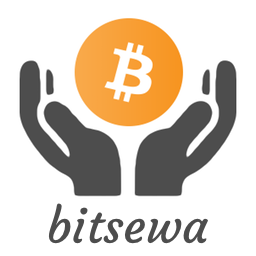Whereas bitcoin exchanges and information are prized on other parts of the globe, in Nepal dealing in the world’s most popular cryptocurrency will get businesspeople arrested. After throwing nearly a dozen bitcoiners in jail not long ago, the government is at it again, arresting two others, pushing bitcoin further underground.
Also read: Bitcoin Illegal in Nepal? Police Arrest Seven Individuals for Trading Operations
Nepal Names Names
In other parts of the world, where innovation is relatively freer and allowed to blossom, names like Ram Dhakal and Purusottam Dhar Tuladhar might be well-known convention circuit stars – gazillionaires much sought-after for their business drive. In Kathmandu and Pokhara, Nepal, those names are splattered online and in print as bitcoin criminals.
“The Central Investigation Bureau [(CIB)] of Nepal Police has arrested two persons for allegedly operating a bitcoin racket,” The Himalayan Times reports, “under the cloak of online technology business.”
“SP Jeevan Shrestha, CIB spokesperson, said [the two] were allegedly running [a] cryptocurrency racket under the name of Bitsewa Pvt Ltd,” the article notes. The presumed website, www.bitsewa.com, was down as of this writing. However, its Facebook page remains online, https://www.facebook.com/BitsewaOfficial, and nothing news.Bitcoin.com could find seemed nefarious or criminal.
The Nepalese authorities assert, “They registered a company in the name of Bitsewa Pvt Ltd on the pretext of running business of online technology, information dissemination and software development. They had also opened www.bitsewa.com calling it ‘Bitsewa: Nepal’s First Bitcoin Company and Digital Assets Exchange’.”
Bitcoin is an online technology, disseminated through information and software development.
Lured through Facebook
The article also characterizes the exchange’s customers as being lured, as in “the duo were also luring people through the company’s Facebook Page.”
A click of the Facebook page, again, seems straight-forward and informative.

“Though it is legal in some countries and over 1,100 cryptocurrencies are in practice,” the article notes, “its trading is punishable under the Nepal Rastra Bank Act.
The Nepal Rastra Bank Act, a 49 page document published in 2002, updated in 2006, makes no mention of cryptocurrencies nor bitcoin. It is unclear what part of the statute the two violated.
The article was sure to emphasize how the “central bank has already imposed a ban on the transaction of bitcoin and gravity coin in Nepal.”
Techlekh‘s Abhishek Gupta writes, “Though Bitcoin is flourishing in some countries, it is still seen as an economic threat to many.” The threat appears to be how many “countries fear that since Bitcoin transactions are highly anonymous [and how] it can become a tool for criminals for germinating several crimes, especially money laundering.”
No money laundering charges were brought against either, according to several articles.
What do you think of Abra’s claims? Tell us in the comments below!
Images courtesy of: Pixabay, Facebook.
At Bitcoin.com there’s a bunch of free helpful services. For instance, check out our Tools page!















